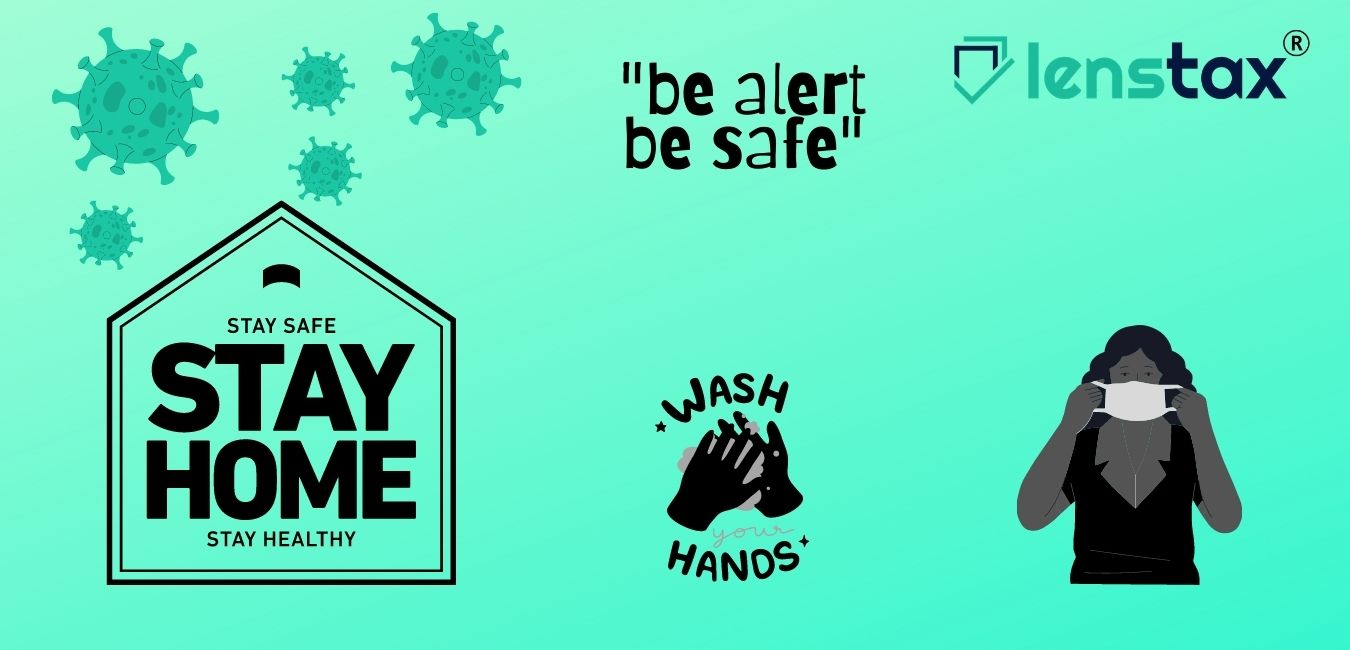‘Stay home, stay safe’- simple precautions for COVID-19 and awareness
Updated on : 2021-May-06 16:32:33 | Author :

If COVID-19 is spreading in your community, stay safe by taking some simple precautions such as physical distancing, wearing a mask, keeping rooms well ventilated, avoiding crowds, cleaning your hands, and coughing into a bent elbow or tissue.
COVID AWARENESS
When you are in an area of widespread COVID-19 transmission then you should take some safety measures such as, Check local advice where you live and work and do it all.
- Go to open spaces because open-air spaces are safer than enclosed spaces.
- Don’t go in close proximity. Go as far away as possible from others than close together.
- Spend time with peoples as short as possible otherwise, you might be at a very high risk of catching the most fatal disease.
- If you have been diagnosed with COVID-19 then you should stay in a separate room and away from others.
- Open windows frequently to lower the risk of spreading the disease to your nearer and dearer ones.
- If someone is sick in your household then isolate the sick person. Prepare a separate room or isolated space and keep your distance from others. Keep the rooms well ventilated and open windows frequently.
- You should reduce contact with the virus by identifying one household member to be the contact person who is not at high risk and has the fewest contacts with the people outside.
- Wear a medical mask if in the same room as the sick person.
- Use separate dishes, cups, eating utensils and bedding from the sick person.
- Clean and disinfect frequently touched surfaces.
- Take care of the sick person by monitoring the sick person’s symptoms regularly.
- Pay special attention if the person is at high risk for serious illness.
- Ensure the sick person rests and stays hydrated.
- Call your healthcare provider immediately if you see any of these danger signs:
- Difficulty breathing c) Loss of speech or mobility
- Confusion d) Chest pain
- Visiting family members is important. Your support can play an important role in their physical and mental well being. Here’s how you will have to protect them and yourself:
- Cancel your visit if u feel unwell or have had contact with someone diagnosed with or suspected of having COVID-19. Talk to the facility administrators if there are unusual circumstances, such as a gravely ill family member.
- Ask about the time and condition of visits, such as required testing, mask and hygiene advice.
- Stay safe when you are going to visit your family member. Wear a mask. Use sanitiser at the building and room entrance. Keep at least one-meter distance from others.
- Help your family members understand any changes or procedures, such as vaccinations for influenza and COVID-19, or why wearing a mask or isolation may be needed.
- Continue to keep in touch by phone or video calls, especially if your visit is postponed.
- When you are going shopping for groceries or any other necessary items then you must reduce your risk by avoiding going outside at peak hours. Visit shops when they are absolutely empty or very few people are there.
- When you are inside the stores keep your shopping time short and make a list. Keep at least a 1-meter distance from others.
- When you are approaching for necessary medical appointments then you must reduce your risk by calling to check if a phone telemedicine consultation is possible and appropriate. If not, schedule your appointment in advance.
- While waiting for your appointment avoid crowded settings, maintain physical distance or ask to sit in a less crowded place.
- When someone gets suddenly sick in your household then get your contacts ready for health information and care, your doctor, health facilities and emergency numbers.
- If someone gets sick then stock up on supplies such as regular medicines, medical masks and cleaners or disinfectants.
- Put in place a support network for groceries, transport, childcare and other essentials so that the COVID-19 patient can be out of reach of these items.
Get FREE Advice


